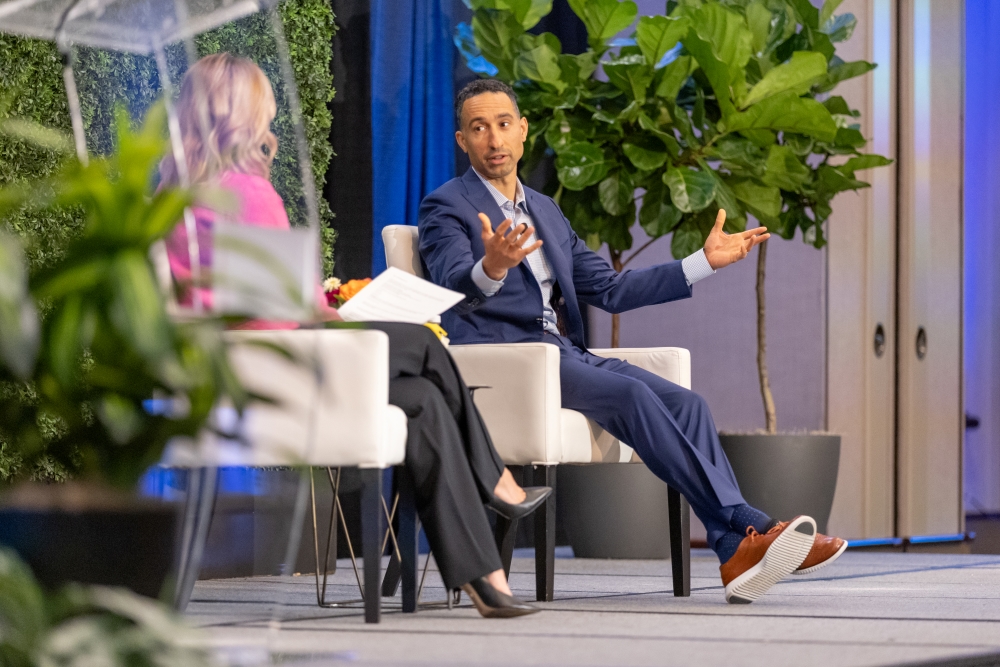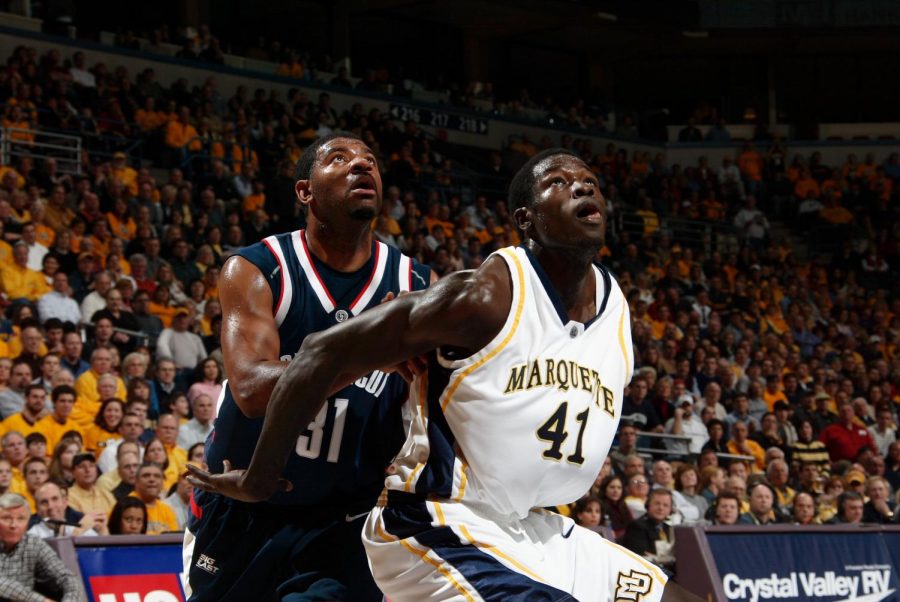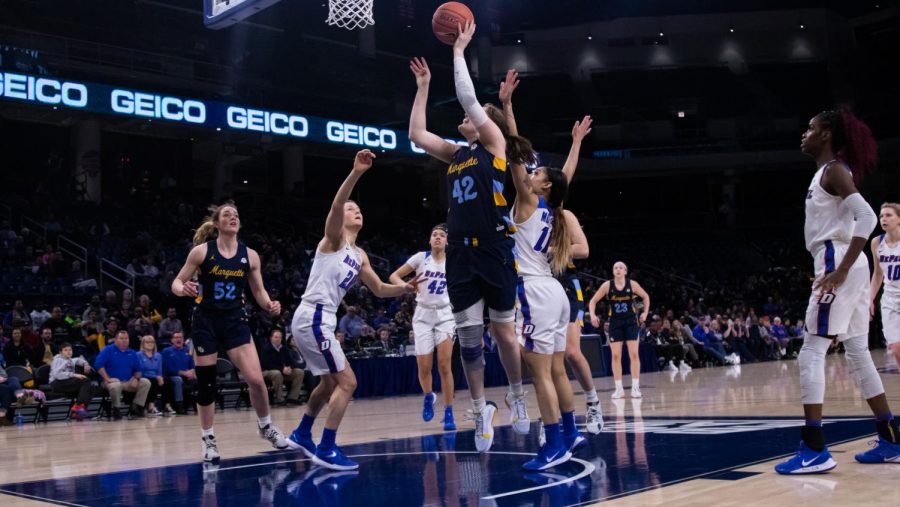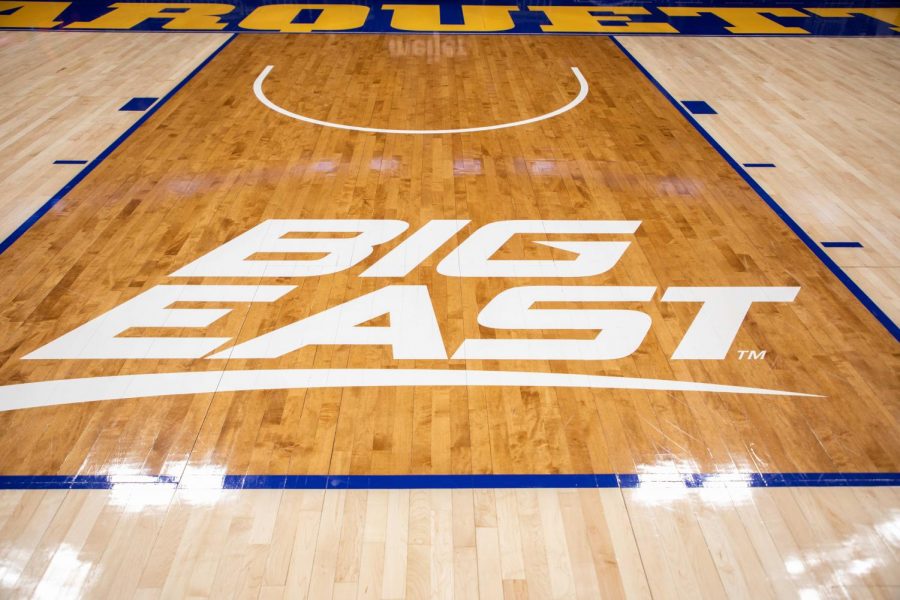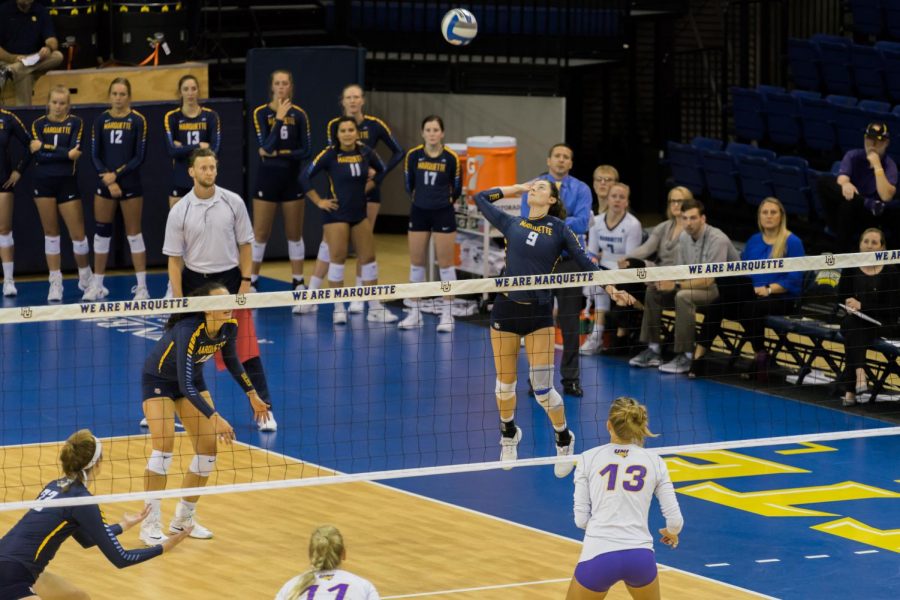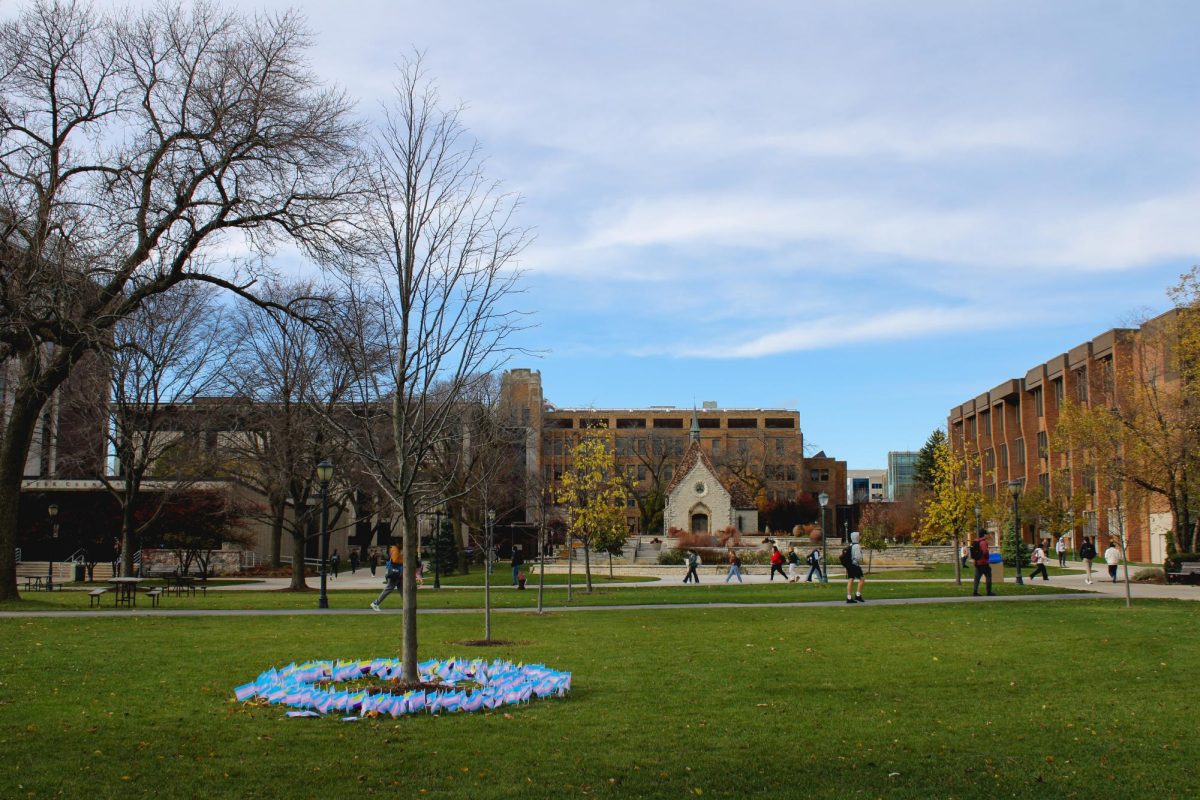Last week, Marquette hosted the fourth Sport at the Service of Humanity Conference taking place in several locations on and around campus. This event brought together professional athletes, journalists, faith leaders and other community members.
Val Ackerman, commissioner of the Big East Conference and SSH conference partner, said this year’s conference “The Power of Sport” was designed to explore uplifting themes about the role of sport and faith in constructing a peaceful world.
These themes were explored through the conference’s three pillars: involvement, inspiration and inclusion. The first “I” focuses on the transformation of communities, the second on the power of sport to create joy and the third on creating an environment for all to be welcome in sports.
Involvement
Vin Baker, a former NBA All-Star and current assistant coach for the Milwaukee Bucks, is sometimes known for being a prominent basketball player who lost the $100 million he earned in the NBA due to issues surrounding substance abuse. After taking time out of the spotlight and working a job at Starbucks, Baker said the media misunderstood that he was turning his life around.
Baker, now celebrating 14 years of sobriety, said he put his faith in God to turn his life around. Being a pastor’s son, he spent a lot of time in church throughout his life and said the welcomeness he felt there was incredible despite his struggles.
Inspired by his deep faith and the transformation of his life, Baker decided to get involved in the Milwaukee community by creating the Vin Baker Recovery Center. While there is no official date yet, Baker said the center located at 4757 N 76th St. will be opening soon.
“It’s a center that will service 900-1,200 people per month on their road back to sobriety and living life on life’s terms,” Baker said. “It’s the most important thing I’ve ever done in my life, so I’m happy that it’s opening.”
Inspiration
Shaka Smart, head coach of the Marquette men’s basketball team, grew up without a father present in his home. He said he grew up looking for male influences to make him feel more whole, which he often found in the form of coaches.
“When you go through adverse circumstances when you’re young, whether it’s poverty, a broken home, any type of drug use or anything like that, you need even more help. Coaches continue to fill that void,” Smart said.
Smart, who is now known for his coaching, first played collegiate basketball at Kenyon College in Ohio and dreamed of making it to the NBA. While he said he never truly understood the concept of being a coach during his college years, Smart took on his first assistant role at California University of Pennsylvania at the age of 23.
“I was fortunate to be a part of teams or coaches who put their arm around me, and that’s what really inspired my love of sports. I used to look at those guys like they were 10 feet tall, and so a big part of why I got into coaching is because of the impact of coaches,” Smart said.
In his three years at Marquette, Smart has built a team culture that strongly values community, and he said all of the players heavily impact one another.
“We really want to celebrate our guys when they affect people in the right way, not just within our team, but on campus and even beyond,” Smart said. “We’ve tried to find ways to bring our cultural values and principles to life and share them with our fans because we have some of the best fans in the world here at Marquette.”
Inclusion
Nancy Armour, columnist for USA TODAY Sports and Marquette alumna, talked about the importance of continuing to create spaces for women and other marginalized groups in sports.
“I often say sports are the prism through which we view society,” Armour said. “Sports help us break down barriers, and if you are in a position of leadership within a sport you should know that, you should recognize it and you should do everything you can to foster it.”
Armour said the inclusion necessary in sports is still lacking in various departments. She said that the current pay-to-play culture where wealthy children receive the best athletic opportunities is creating a socioeconomic disparity in sports.
Even after the passing of Title IX, Armour also mentioned how women face many uphill battles in the sports industry. She said that sport provides women with the resources to be confident and successful in all industries, which is why any ongoing discrimination should not be tolerated.
“Things like this need to be addressed, and not just at the university level,” Armour said. “It’s incumbent upon us to challenge schools and institutions. Are they doing enough for their women? Because as history and studies have shown, societies are better when women are treated equally and have an equal place at the table.”
This story was written by Mia Thurow. She can be reached at mia.thurow@marquette.edu.


